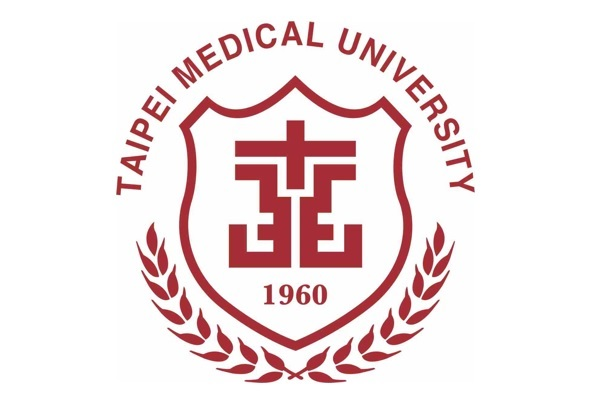HYDROGELS FOR TISSUE ENGINEERING LABORATORY
Research Field
Dr. Chih-Hsin Lin graduated with a PhD in Dentistry from National Yang-Ming University in 2016, specializing in biomaterials and tissue engineering. Following this, Dr. Lin worked as a Postdoctoral Fellow at MIT Koch Institute from 2017 to 2019, led a project focused on fabricating liver tissue with integrated vasculature using bioprinting techniques, aiming to create a high-throughput system for drug screening—a significant contribution to tissue engineering and regenerative medicine. In 2019-2020, Dr. Lin further expanded her expertise at Chang Gung Memorial Hospital in Taiwan, where, as a Postdoctoral Fellow at the Center for Tissue Engineering, they developed a 3D-printed scaffold for creating vascularized adipose tissue. Currently, Dr. Lin is an Assistant Professor at the Graduate Institute of Nanomedicine and Medical Engineering at Taipei Medical University since 2020, where her work focuses on developing novel biomaterials and utilizing 3D bioprinting technologies to engineer functional tissues for various medical applications.
Our research program is at the cutting edge of biomedical innovation, focusing on advanced tissue engineering, 3D bioprinting, and vascular biology. Our team is dedicated to the development of photocrosslinkable hydrogels as materials for 3D tissue constructs, pushing the boundaries of regenerative medicine. By harnessing state-of-the-art 3D bioprinting technologies, the lab is advancing the creation of engineered tissues and implementing high-throughput systems for drug screening. A key focus of their work is on 3D neovascularization, with the ultimate aim of transforming therapeutic strategies and improving disease management.
Our research focuses on:
Photocrosslinkable hydrogels as 3D tissue construct materials
3D bioprinting for tissue engineering applications
High-throughput system for drug screening
3D neovascularization
- Visiting fellowship from the National Science Council of Taiwan (NSC) to pursue advanced research at the Department of Chemistry, University of Oxford (2022-2023).
- Postdoctoral fellowship from the NSC to study at the David H. Koch Institute for Integrative Cancer Research, Massachusetts Institute of Technology (2017-2018).
- Graduate Student travel grant from the NSC to participate in an international conference (9th Meeting of the Scandinavian Society for Biomaterials, Reykjavik, Iceland), May 2016.
- Graduate student study abroad scholarship from NSC to study at the Department of Developmental Biology at Harvard School of Dental Medicine (2013-2014).
| 2011-2016 | National Yang-Ming University (Taipei, Taiwan) PhD of Science, Department of Dentistry |
| 2013-2014 | Harvard School of Dental Medicine (Boston, MA, USA) Visiting Student, Department of Developmental Biology |
2007-2010
| National Taiwan University (Taipei, Taiwan) Master of Science, Institute of Zoology |
| 2004-2007 | National University of Kaohsiung (Kaohsiung, Taiwan) Bachelor of Science, Department of Life Science |
2 Vacancies
Job Description
Key Responsibilities:
Assist in the preparation and characterization of photocrosslinkable hydrogels and bioinks
Participate in 3D bioprinting experiments, including construct design, printing, and post-processing
Conduct cell culture, viability assays, and basic biological evaluations of printed tissue constructs
Perform data analysis and maintain detailed lab records
Conduct literature reviews on relevant topics in bioprinting and tissue engineering
Contribute to weekly lab meetings and presentations
Preferred Intern Education Level
Current undergraduate or graduate student in biomedical engineering, bioengineering, materials science, or a related field
Basic knowledge of biomaterials, cell biology, or 3D printing technologies is preferred
Strong interest in tissue engineering and regenerative medicine research
Good organizational skills and ability to work collaboratively in a lab setting
Eagerness to learn new techniques and contribute to ongoing projects
Skill sets or Qualities
Skill Sets:
Basic Laboratory Techniques – Pipetting, sterile techniques, solution preparation
Cell Culture – Familiarity with mammalian cell handling and maintenance (preferred but not required)
3D Bioprinting Tools – Interest or experience in CAD software, slicers, or bioprinters (training will be provided)
Hydrogel Handling – Knowledge or interest in working with biomaterials such as GelMA, alginate, or collagen
Microscopy and Imaging – Basic use of fluorescence or light microscopy for cell/tissue observation
Data Analysis – Proficiency in Excel; familiarity with ImageJ, GraphPad Prism, or similar software
Literature Review and Scientific Writing – Ability to summarize research findings and write clearly
Computer Skills – Microsoft Office, Google Workspace; any experience with Python or MATLAB is a plus
